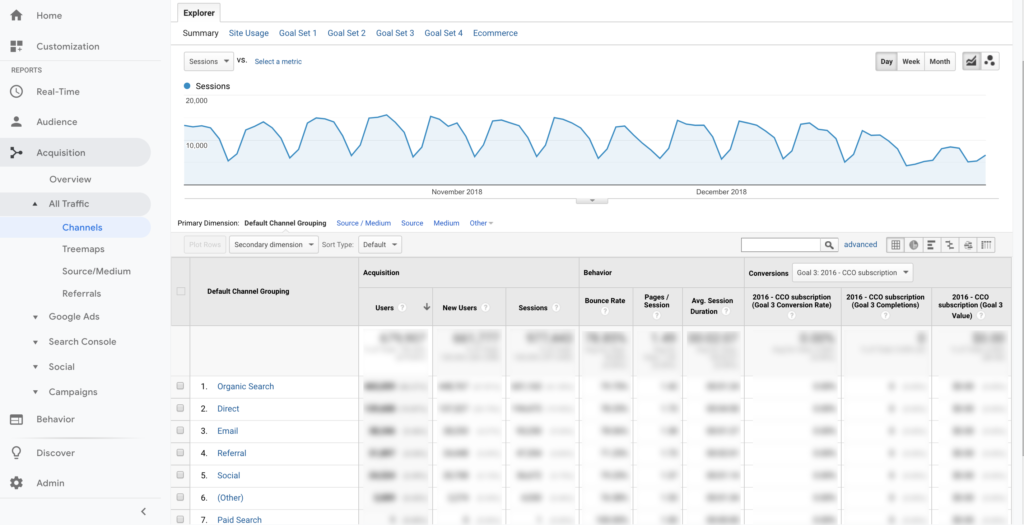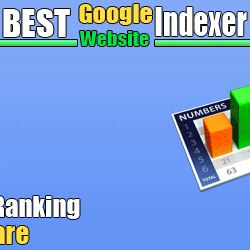Look at some of the easiest to use, and more importantly free, business operations management tools out there. We dive into the best must-have small business tools to run your business.
Growing your company entails a lot of challenges, especially if you’re just starting one. Even if you have a lot of funding and resources alongside your big dreams, you start small and eventually work your way to make your company or business click and thrive. Infoentrepreneurs.org cites some of the common challenges that usually affect growing businesses:
- Keeping up with the market
- Planning ahead
- Cash flow and financial management
- Problem solving
- The right systems
- Skills and attitudes
- Welcoming change
As your business grows, so does your team of employees, contractors, and service providers. Managing communication, collaboration, and cooperation between everyone can become a time-consuming task for you, as a manager. These tools can help you streamline these processes and save you the time you might be spending as an information conduit for your subordinates and partners.
Table of Contents
1. Connecteam
When you have many deskless or less tech-savvy employees, Connecteam is the best free small business tool for you. After all, it was specially designed and built to cater to these employees! Apart from being super easy to use, Connecteam enhances your daily business routine. How so? Connecteam is the leading business tool that makes it easy for managers to offer feedback, enhance engagement, remain transparent, and unite all workplace communication and collaboration – for free.
- Focus on employee recognition and celebrate when someone new joins the team, share milestones to acknowledge such as anniversaries or amazing customer reviews, create an employee spotlight, and more.
- Boost engagement through announcements, newsletters, and updates that you can segment per group and channel to avoid information overload. Share goals met, new sales landed, key protocols, and more.
- Let your team be heard through surveys, a suggestion box, and live polls so you can make smarter business decisions based on direct feedback from your team.
- Create interactive communication with group or one-on-one chat and share GIFs, videos, and pictures. Decide whether your team can engage with your update with likes and comments or if it’s a one-way announcement to keep everyone on the same page.
- Use the searchable employee directory to keep all work contacts on the app instead of your personal phone, easily find the contact needed with a quick search (name, job title, location, etc.) and quickly engage with the contact through action buttons like phone call, email, or chat.
2. Google Docs (& Friends)
You can’t write about free online services without mentioning Google, so we’re going to start with the Internet giant everyone knows. This is a great tool when you need to collaborate on files.
When it comes to sharing files and collaborating on documents, Google Docs, Sheets, and Slides are the way to go. The files are stored in your Google Drive and are a wonderful way to avoid those endless back-and-forth emails when collaborating on various documents.
3. Join.me by LogMeIn
Gone are the days of conference calls. Well, maybe not gone but definitely changed. Solutions like LogMeIn’s join.me conferencing tool lets you present to multiple employees or clients from the comfort of your home or office chair, saving you long trips.
CRM and ERP Business Tools
Keeping track of sales processes and inventory gets increasingly harder as your lead acquisition channels vary and your operation grows. By digitizing your inventory and sales process tracking, you can save a lot of time and complete sales faster and more effectively.
4. Hubspot CRM
A free CRM solution that promises to stay free forever and offers automation features that help track customer interactions. You can also create and follow sales-related tasks and get a good overview of your sales funnel at any given time.
5. Proofhub
This easy-to-use project management and team collaboration software is a great option for small businesses. By replacing the multiple tools required for task management, collaboration, time tracking, communication, file sharing, and reporting with a single all-in-one software, and gives teams a central source of truth.
6. Sellsy

One of the challenges with managing sales processes can be combining sales process data from various channels (online, PoS and inside sales). Sellsy combines that with client relations and contact marketing, as well as inventory management and even time tracking.
7. xTuple
The path from product manufacturing to sitting in the hands-on of your customers can be complex. xTuple is a free open-source ERP solution with an integrated CRM system, intended mostly for companies producing products rather than services.
Automation Business Tools
You might not even notice, but some of your precious time is spent in two of the most unpleasant activities: waiting and catching-up. You wait for replies to messages or responses from clients. And try to respond as quickly as possible when you miss communication or customer action.
By automating as many of your business processes and tasks as possible, you can save precious time you might currently be spending doing something a simple algorithm can.
8. IFTTT
“If this then that” is a simple but flexible automation system that integrates hundreds of apps and services to create automated processes for things. For example, you can create an IFTTT so that leads from your website turn into contacts in HubSpot.
9. Zapier
Similar to IFTTT, Zapier is a more business-oriented automation tool that integrates with significantly more apps and services than IFTTT. So before selecting one or the other, you should ensure it communicates flawlessly with the tools and services you currently use.
Email Business Tools
Many online experts like to claim then email is dead or dying. It really isn’t. Email is still the most common tool for communication in business, and that’s not about to change. Just evolve.
Today’s challenge is cluttered inboxes and difficulty keeping track and measuring the effectiveness of email correspondence. Some tools are out there to replace your current messy inbox. And others just try and make email communications a lot more effective for your business.
10. i-Autoresponder
Email communication with clients and partners is often based on regular newsletters, and few solutions do it better than i-Autoresponder. With a WYSIWYG template editor and tracking of open and click rates, this tool is a must for any business managing a newsletter. The service is free.
Another cool feature worth mentioning is integration with the automation platforms we mentioned earlier which lets you get creative with how you maximize the effectiveness of your email marketing efforts.
Task Management Business Tools
The bigger your team and, the harder it gets to keep track of all the various tasks of all the employees, contractors, and partners. Without a management solution, these tasks can get lost and not completed, falling between the proverbial chairs of everyday work. Alternatively, you’ll find yourself wasting too much time micromanaging your workers’ tasks. And no one wants that.
11. Asana
This simple and free (up to 15 users) task management solution is easy to use and rather flexible. Much like asanas in yoga. It lets you create repeating tasks, assign them to team members, and keep track of the task progress from a single customizable dashboard.
On-the-Spot – Point of Sale Business Tools
Once upon a time, you needed a cash register to keep sales organized in your store. Those things were expensive, bulky, and aside from the famous “ka-ching” sound, they had little to offer in terms of features. Those days are gone, and now all you need is a basic desktop computer to manage your POS activity.
12. Loyverse
This free POS tool, as the name implies, is a POS and loyalty program solution for businesses like beauty salons, florists, and small stores. It includes analytics as well as inventory management and is available for free on Google Play and the iTunes App Store.
Analytics Business Tools
Managers of small businesses should keep an eye on how their brand is performing online, this ties directly to sales and show you where more effort is needed.
12.1. Google Analytics

Google shows up on our list once again because its capabilities are great and free. Google Analytics shows you how and from where your customers are coming from on your website. This allows you to enhance your marketing strategy to generate more leads.
Business Development Tools
As a business owner, you are always learning new things to help push your business forward and into a money-making machine. There are lots of free resources available so that you can gain the knowledge as you’re developing your business from start-up to raking in the cash.
14. SBA.gov
Taking a look at the U.S. Small Business Administration’s website can really make a difference so you can learn more about writing up business plans, how to finance your business, insights and tips for entrepreneurs, and so much more. Whether you’re just starting out or have been running a business for years, SBA is a valuable source of information.
15.SCORE
SCORE, a non-profit, has been around for 50+ years and is an amazing resource for helping small businesses get off the ground. It offers free learning opportunities online, in-person mentoring, and more.
Design Business Tools
Creating gorgeous design assets for your website, social platforms, and email marketing is a must in today’s day and age.
16. Canva
Hiring a professional graphic designer is a costly expense and one you might not be able to afford straight away. With Canva, you have pre-formatted templates for EVERYTHING. Including social media banners, marketing flyers, events, documents (presentations, letters, reports, etc.), and so much more. Canva is super easy to use and the results are stunning!
17.Google My Business
Over 100 Billion searches are performed on Google every month. So, if your business is not discoverable on Google, you are losing out on a huge business opportunity. Fortunately, Google makes it easy for small business to list their business on Google products such as Maps and on search engine.
Google My Business is a free tool that lets you list your local business easily. Its a great way to build your web presence and generate more leads.
18. Google URL Shortener – Best URL shortener for creating branded links
1stURL is a full-featured URL shortener service that can be used to not only turn long URLs into short ones, but also track the traffic coming from your links. Its dashboard shows trending links and general statistics, while an analytics page lets you dive into traffic by device, location, and referrers. You can also drill down into clicks by the time of day. Tags, which you can add to your shortened links, let you view your link website traffic in new and custom ways and are perfect for tracking and coordinating campaigns.
Bottom Line On Tools For Small Business Owners
One thing you’ll notice with free tools is how limiting they are when it comes to features and capabilities, and number of users. You can make use of them in the short term, probably in the first two to three years of your business, to put your company in an upward trajectory. But you’ll eventually reach the point where free tools become inadequate as you serve more customers, hire more employees, and handle bigger operations. Growing your company needs serious, capable tools that come with paid solutions. Fortunately, free plans are designed in such a way to provide you a smooth, hassle-free transition to premium plans when your situation calls for it.
Depending on your business, there are primary tools that you need immediately and secondary ones that you can have later. So know your priorities and get tools that you’ll be using most often and believe to be most useful in your line of business. Remember, there are solutions for just about every business function.
You don’t need to become a mobile phone expert or software developer to use technology to grow your business, be it a local grocery shop, a plumbing service, or a toy manufacturer you can quickly and easily set up any of these tools to start managing your business operations.
That being said, just implementing a bunch of tools doesn’t guarantee success. You need to be strategic about how you operate your business. But fear not more tips, strategies, tactics, and more are available in our blog posts.























